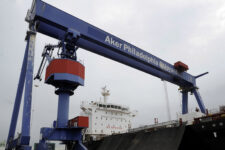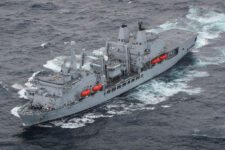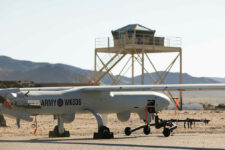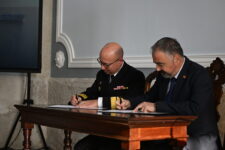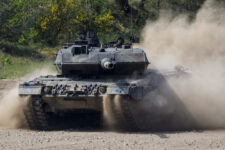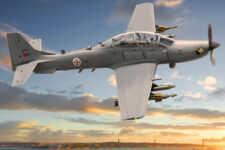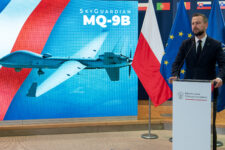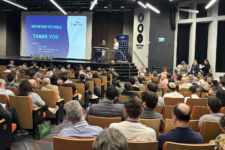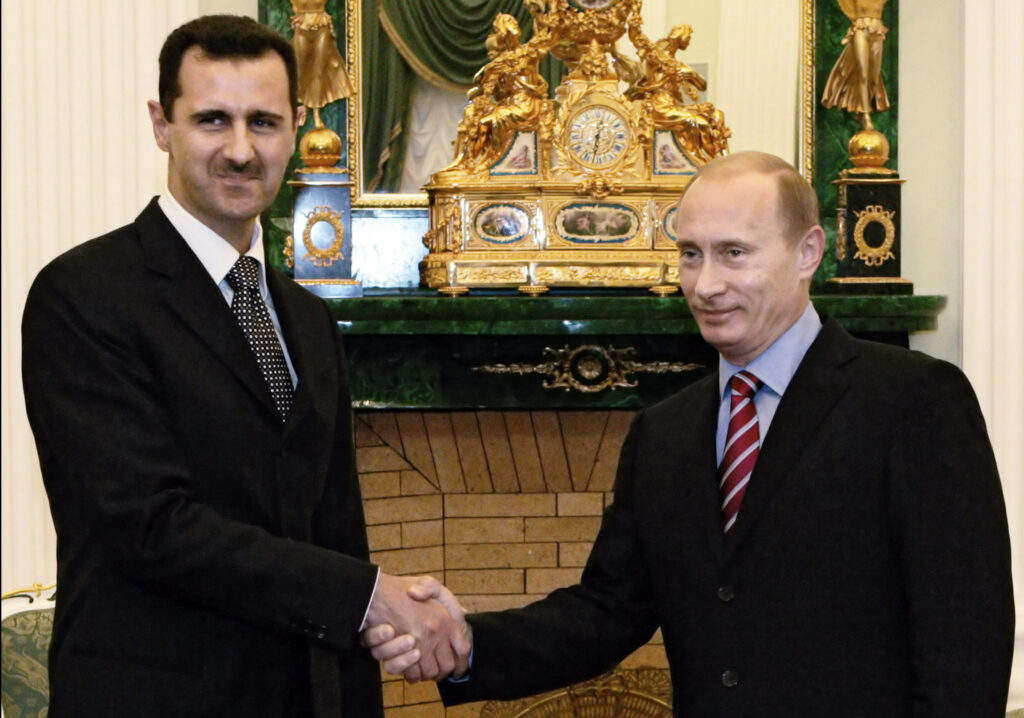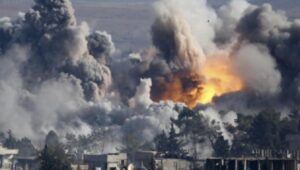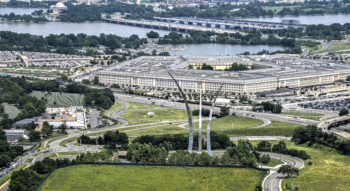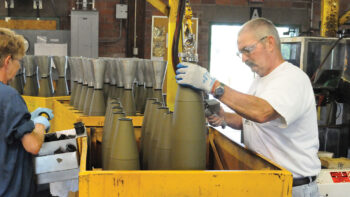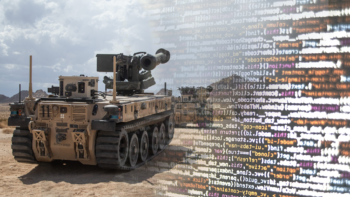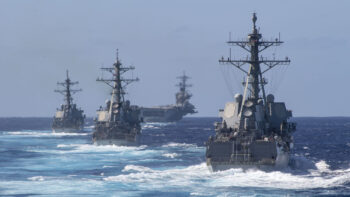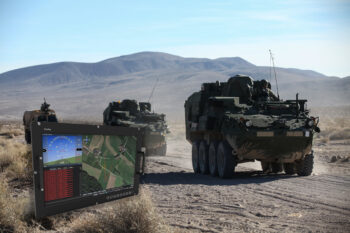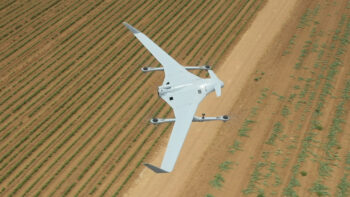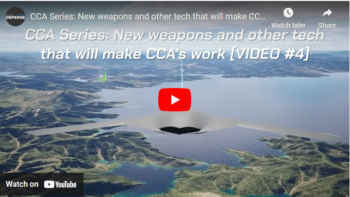President Francois Hollande of France arrives Tuesday in Washington for talks with President Obama. Top of the list will be how much America is willing to commit to destroying Daesh, the terrorist group we used to call ISIL. Robbin Laird, Ed Timperlake and Harald Malmgren explore in detail what America’s options are, what France wants and what should be done. Read on. The Editor
When analysts and intelligence experts were highlighting the warming sun of the Arab Spring, there was much hope. Democracy was in the air and the gap between Islam and the West might be closing. Then came Paris. Rather than a warming sun, close observers felt an icy chill, and an evident European strategic shift away from the agenda set by Washington.
Major changes in geostrategic forces began when the U.S. President backed off his Syria Red Line, and then pushed relentlessly his own objectives with Iran while dismissing French, Israeli, and Gulf Arab reservations to the U.S.-Iran accord. The Russian decision to accept Assad’s invitation to intervene militarily in Syria, and enlarge its military base presence there laid down an historic marker for a significant reconfiguration of power, not only in the Gulf, but also the entire Eastern Mediterranean region.
The most recent attacks on Paris and spreading fears of many more to come throughout the Middle East, Europe, Russia and even the U.S. have directly triggered Russian-French and broader Russian-European considerations of collaboration against existential threats posed by ISIS terrorism and the closely related crisis of migration reaching into the heart of Europe.
It is most important to note that when President Hollande declared a state of war with ISIS, he deliberately chose to invoke Article 42.7 of the Lisbon Treaty, not Article V of the NATO treaty. Article 42.7 is the “solidarity clause” that states if a member of the European Union is the victim of “armed aggression on its territory,” other EU member states have an “obligation of aid and assistance by all the means in their power.” In essence, France chose to work within a European framework, without formally drawing in NATO and the U.S. direction that would entail.
Meanwhile, Russia’s entry into Syria has led to bolstering Assad for the time being. More significantly, it consolidated an opportunity for Russia to establish a strong, permanent land and sea Russian position adjoining Turkey, Cyprus, Lebanon, Egypt, Libya and the entire area encompassing Sunni-Shia and tribal rivalries and conflicts throughout the Gulf region.
Putin has dramatically altered world perceptions of Russia’s ability to project power, and thus strengthened Russian influence with all the players in that vast and strategically significant geographic region.
The Russians began with a relatively high tempo of air sorties from a small force compared with a slow U.S. tempo of sorties and weapons widely seen as a trickle, or as Dave Deptula at the Mitchell Institute has correctly declared, a Desert Drizzle. Fighting a clear and decisive air campaign against ISIS infrastructure is clearly necessary. Deptula has contrasted the current airpower “drizzle” against ISIS as making little sense. His point that the life-saving morality of unleashing airpower to shut down ISIS’s ability to acquire money for their ongoing unrelenting horror is a core and crucial task, requiring immediate action.
Even the Iraqis have gotten this point. As one Iraqi military leader was quoted as saying about the desire to bring the Russians into the Iraqi fight:
The US-led rules, which enforces verification of targets, regularly give IS militants time to save their supplies, equipment and fighters, they said. “This is an exceptional war and our enemy has no rules,” one of the officers said.
“How [can] you ask me to stick to the rules while my enemy is brutally killing my people every day, enslaving my sisters and destroy my towns and cities?
“Russians have no red lines, no complicated and restricted rules, so it would be easy for us to deal with them,” he said.
When ISIS took responsibility for the terrorist bomb which destroyed a Russian aircraft with Russian civilians aboard, Putin saw the way opened for a more robust response. The Paris terrorism which followed triggered a French military response. It became instantly obvious that both Russia and France then had a common objective to take down the ISIS caliphate cooperatively. Military coordination became essential, but consideration of longer term regional consequences also came into play.
Putin had already initiated conversations with other interested parties in the neighborhood, including Israel, Jordan, Saudis, Turkey, ostensibly for “deconfliction” arrangements to avoid mutual accidental impediments in the airspace in and surrounding Syria. Notably, Putin invited Prime Minister Netanyahu to Moscow in September to forge a deconfliction agreement between Israel and the Russians. The Israeli diplomatic mission to Moscow included senior Israeli military officials. Consequently, both political and military issues were on the table from the start.
Putin had also explored coordination with Iranian (IRGC) actions and leadership in the Syrian theater. There should be little doubt that “deconfliction” and Iran action coordination have metamorphosed into much more substantial exchanges of intentions and intelligence. The U.S. military remained constrained by Washington concerns about potential collateral damage that might be blamed on US forces, and the other parties functioning alongside Russia and France to take down ISIS perceived U.S. action as marginalized. This is an unintended “lead from behind” move from Washington.
Initially, the Russian air force’s introduction of a relatively small number of combat aircraft enabled establishment of an operationally secured new air base in Hemeimeem to function in parallel with the equally important Russian naval base in the Port of Tartus on the Mediterranean Coast
Both Russia and France are now at work to degrade and destroy the vital water, electricity, and communications infrastructure of ISIS in its Raqqa capital and other bases of operations, and to destroy its revenue sources of oil production, refining, storage, and distribution. And it is interesting to note, that according to U.S. government sources, the U.S. provided France with targets for the initial retaliatory strikes. This raises a core question: if the U.S. claims to have known those targets whey were they not hit months ago?
In this new joint effort Russia-French effort has found an opportunity to deploy and demonstrate use of its strategic, cruise missile enabled bombers, sea-launched missiles, and even subsea submarine launched missiles, making clear to the world that Russia’s military has returned from its enfeeblement after the collapse of the USSR.
The Russians are backing a sovereign government with that government’s approval. Because of that the Russians, acting consistently with UN Security Council accords, have reset the war and inserted themselves into a lead position. Regardless of the number and specifications of the weapons applied, it is the intangible of direct and deadly combat decisiveness that now forms the foundation for Russian expansion of their diplomatic role in the region. In reality, Russia has displaced the primacy of the U.S. in the calculations of neighboring governments, at least for the time being.
In this new strategic context, all of the key regional players see Russia as a force to contend with. Significantly, even Israel and Russia have made a “hot line” agreement, the significance of which has been totally underappreciated by world press and media. It can be assumed that Israel has taken up with Putin its deep concerns with Hezbollah in Lebanon, and the supporting role of Iran. Israel will want to find means of mitigating existential threats in Lebanon. This poses interesting strategic choices for Putin, which may entail reducing its support for Iran inspired turmoil in areas where Russia now will have, far more direct influence.
Now Russia is a legitimate player and certainly the French have approached them as such. The French public does not want to be blamed for indiscriminate collateral damage; they would prefer that any collateral damage occur in the areas where ISIS has set up a state, and areas which finance ISIS non-state actions.
Washington had up to now been unwilling to authorize decisive and wide ranging direct attacks on the infrastructure of ISIS. Now Russia and France have been extraordinarily incentivized to go ahead.
As Professor Amatzia Baram, a leading Israeli expert on the Middle East has put it:
“IS” cannot be defeated as long as it controls territory that can produce large revenue and serve as base for operations.
“IS” has the Iraqi-Syrian desert that is providing them with some $1.5m per day worth of oil, in addition to ransom, an endless supply of archeological items and a few million Islamic tax (zakat, kharaj, ‘ushr) payers.
They are probably the richest Islamic terrorist organization in history, richer even than the dreaded Assassins of Alamut Mountain, who terrorized the Islamic world and the Crusaders between the 11th and 13th centuries.
With France, Europe and Russia moving closer together to shape an anti-ISIS strategy, including the Russians proposing military cooperation at sea as the Charles de Gaulle aircraft carrier comes on station to start its operations, the confluence of interest in invoking the UN might also occur.
Assad is the legitimate ruler of Syria; the UN charter protects sitting governments. And it is being credibly discussed that the Russians are more than willing to broker a deal in which Assad goes if his government stays.
Although Russia wants a consolidated long-term presence in Western Syria, it is highly unlikely Russia wants responsibility of managing tribal, ethnic, and ideological conflicts in Eastern Syria. The Sunni Gulf States want a new framework of security that limits IRGC and Shia militias from continuous disruption of their domains and neighbors.
Time is of the essence to grasp the opportunity of fluidity of the situation, with ISIS ripping apart the borders, while also making a mockery of them. Bringing in a UN commission of some kind to have a new look at Sykes-Picot and British-French borders drawn at another time of history could enable all parties to give serious consideration to reshaping not only Syria, but the Syria-Iraq volatile mix of inherently incompatible cultures and regimes. All engaged parties should consider reshaping the SYIRAQ boundaries in a UN sponsored Peace Process.
Professor Baram has argued that a key way to defeat the Islamic state is by backing one tribe at a time.
A sample of the solution is already enfolding in front of our eyes.
With Allied air support, the Kurds of Iraq and Syria have already pushed IS out of large swaths of land.
In early November the Iraqi Kurds launched a renewed offensive to drive “IS” out of Sinjar, in Iraq’s north-west. They must be helped much more, but the Kurds do not have the numbers to liberate either of the two countries.
Most of the Sunni-Arab tribes of Iraq and Syria living in “IS”-occupied areas are sitting on the fence, waiting.
They are hostile to “IS” due to its super-extreme interpretation of the Islamic law, very alien to local traditions, but they are also hostile to the Alawite regime in Damascus, to the Shi’i government in Baghdad, and to the Shi’i-Persian overlords in Tehran.
If their expectations are met by the international Coalition they will fight “IS”.
Setting up a great power UN Commission to broker the redesign of Iraq and Syria based around tribes demonstrating their commitment to the destruction of ISIS, can shape a long term future where all powers can engage to support the shaping of a post-ISIS order is a worthy goal. Historically, there have been blue helmets on the ground for UN peacekeepers; now pilots could fly with blue helmets to destroy ISIS and save civilization from Islamic extremism.
Russia would be a key player in this process; and a Franco-Russian reconciliation followed by a broader Russian reconciliation with Europe would also anchor such a process.
Otherwise the world will be left with a reticent U.S., preoccupied with domestic American elections, unable to act robustly to influence events. The time of incrementally modified COIN strategy enthusiastically endorsed by MILIcrats has passed, overtaken by events in Russia, Europe, and the East Mediterranean and Middle East regions. We need to stop deluding ourselves that we are winning the “hearts of minds” of whatever faction of Muslims we think are our friends for the moment. We need to work with the Russians, the French and others to reshape the region to root out and destroy ISIS.
As President Francois Hollande put it more clearly than anyone else:
“Our enemy in Syria is Daesh, so it’s not about containing but about destroying this organization to save the populations of Syria and Iraq, but also Lebanon, Jordan, Turkey and neighboring countries. It’s also to protect us, to prevent this from happening on our soil…
“Our enemy disposes of the most vile tactics to kill, but the enemy is not out of reach.”
With a newly shaped coalition focused on the destruction of ISIS infrastructure and a willingness to tolerate more robust military actions, the political framework for shaping a new configuration of the regions in SYIRAQ might be in the offing.
President François Hollande will meet with Obama on Tuesday in Washington.
Robbin Laird, a defense consultant, is a member of the Breaking Defense Board of Contributors and owner of the Second Line of Defense website. Ed Timberlake, a graduate of the US Naval Academy and former Marine squadron commander, works with Laird. Harald Malmgren, chief executive of Malmgren Global, advises governments and companies on international trade and investment. He served as principal deputy trade negotiator for Presidents Nixon and Ford.
Top defense insights from 2024
A curated look at standout opinions and analysis covering topics like uncrewed systems, NATO partnerships, US-Saudi defense dynamics, and evolving warfare strategies, spotlighting key issues shaping the global defense landscape.


